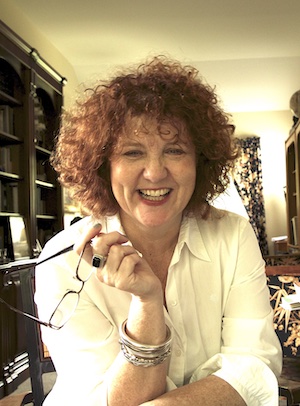Amanda Holmes has been hosting The American Scholar’s popular Read Me a Poem podcast for five years and winning the hearts of listeners as far afield as the Philippines and Brazil. She is also a columnist and poetry editor for the Washington Independent Review of Books. Stephanie Bastek, senior editor at the Scholar and the producer of the podcast, recently asked Holmes about her process.
STEPHANIE BASTEK: How did you first come to poetry? So many of us may read poems that move us in school, but few of us make it as much a part of daily life as you do!
AMANDA HOLMES: I suppose poetry has always been part of my life. My parents were both actors in the United Kingdom, and after we moved to the States, my mother went on to direct in Boston. Both of them had a deep knowledge of Shakespeare, and they raised us with a love for his work. I grew up reading Robert Louis Stevenson’s A Child’s Garden of Verses and A. A. Milne’s When We Were Very Young. My mother encouraged me from a young age to memorize my favorite poems so that I would have a little library in my head. First I memorized several Shakespearean sonnets, and it went on from there. Then in college I did a minor in Oral Interpretation, which expanded my understanding of poetry and taught me more about how to read it.
SB: Could you tell us more about Oral Interpretation and how it helped you unlock poetry?
AH: Oral Interpretation is the study of how to perform works of literature in a dramatic reading. When you study the oral interpretation of poetry, you learn how to scan the meter of the poem and how the rhythm of the lines contribute to its meaning. You also learn how to place your voice correctly, how to breathe, how to pace your reading, and all the other kinds of things actors learn in performance—how to project, how to add light and shade to your reading, and so on. That was where my appreciation began for prosody, for how the rhythms and music of the language are directly linked to the feelings that the poem expresses.
SB: Many of the poems you read are suggested by listeners, but you do make additions of your own. How do you decide which poems you’ll be reading?
AH: As you know, we record the poems in batches, so I’m looking for a range of voices, a balance between male and female, and a variety of ethnic, cultural, and religious frames of reference, as well as a balance between long poems and shorter ones. Sometimes it dawns on me that I haven’t read a particular important poet, so I will add something by one of them. Other times my connections to living poets will enable me to record something very current—such as the work of Ukrainian-born poet Ilya Kaminsky. I am often fascinated by the synchronicities I find in the poems our listeners send in. Certain themes will suddenly crop up, and as these suggestions come from all around the world it’s very important to me to be attuned to what people are feeling and thinking in other places, and what will resonate most at a particular time.
SB: How do you prepare for reading each poem? Do you research the poet, read their other work, look into the context?
AH: I’ve been introduced to so many different poets by our listeners. Often these collections have fallen out of print, so I’ll purchase volumes secondhand to get more of a feeling for who they are—books by Loren Eiseley or Ingrid Jonker, for instance, as well as poets who have been translated into English such as Forugh Farrokhzad or Ferenc Juhasz. Sometimes I’ll read biographies, like Julia Copis’s biography of Charlotte Mew, and in this way I make all sorts of unexpected connections. I read the poems to myself many times before we record them, to get myself, my lower self or ego, out of the way. I want to be a transparency, like a window between the poet and the listener, so that by the time we get into the studio, I almost feel like I am thinking the poem aloud.
SB: What has been your favorite aspect of hosting the podcast?
AH: The feeling that we are moving in the right direction when we connect with our listeners through these poems. I’m really touched by the response we get. Listeners often write in so openly—heart to heart—and address me as if they already know me. And I think it’s because in the world of the poem we do know each other. We know each other on a soul level, on the vibrational level of the poem.
SB: We’ve been recording together for five years now, so I have a feeling about who your favorite poets are—but I’d like for you to tell us yourself!
AH: Well, we’ve never recorded Shakespeare for the podcast, because there are so many wonderful recordings out there already! Shakespeare is at the top of my list, but that’s probably a rather predictable answer. I would also put Wallace Stevens right up there. But in general, I think I have favorite poems rather than favorite poets. It’s very fluid. I do have a real soft spot for poets of the mid-20th century—Ted Hughes, Philip Larkin, Wislawa Szymborska, although I can only read her in translation of course. I really love it when listeners introduce me to poets I’d never read before—from Rabindranath Tagore to Vasko Popa—as well as poets I never even heard of who will suddenly delight me, such as the Appalachian poet James Still. And there are several living poets I really admire, like Carol Ann Duffy and Carolyn Forché.
At top: Photo of Amanda Holmes at home in Virginia by Charlie Webber




